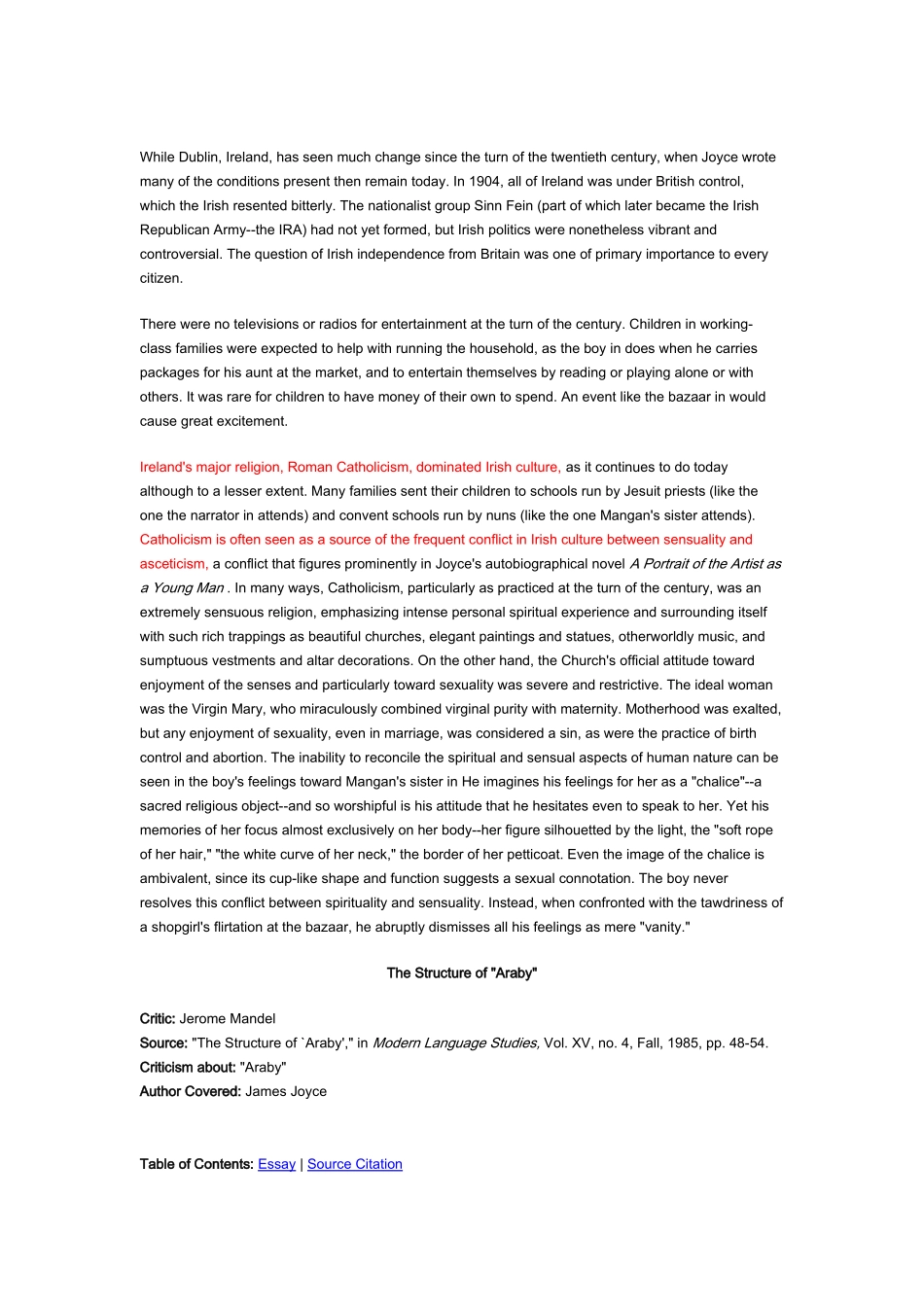"Araby" and the Writings of James JoyceCritic: Harry Stone Source: "`Araby' and the Writings of James Joyce," in The Antioch Review, Vol. XXV, no. 3, Fall, 1965, pp. 375-445. Criticism about: "Araby" Author Covered: James JoyceTable of Contents: Essay | Source Citation[Stone is an educator, editor, and Charles Dickens scholar. In the following excerpted essay, he discusses some of the autobiographical elements of "Araby," which include Joyce's childhood in Dublin, Ireland, and how the exoticism of the real-life Araby festival, with its Far Eastern overtones, impacted the young Joyce. Stone also discusses the poet James Mangan's influence on the story. ]For "Araby" preserves a central episode in Joyce's life, an episode he will endlessly recapitulate. The boy in "Araby" like the youthful Joyce himself, must begin to free himself from the nets and trammels of society. That beginning involves painful farewells and disturbing dislocations. The boy must dream "no more of enchanted days." He must forego the shimmering mirage of childhood, begin to see things as they really are. But to see things as they really are is only a prelude. Far in the distance lies his appointed (but as yet unimagined) task: to encounter the reality of experience and forge the uncreated conscience of his race. The whole of that struggle, of course, is set forth in A Portrait of the Artist as a Young Man. "Araby" is the identical struggle at an earlier stage; "Araby" is a portrait of the artist as a young boy. The autobiographical nexus of "Araby" is not confined to the struggle raging in the boy's mind, though that conflict--an epitome of Joyce's first painful effort to see--is central and controls all else. Many of t...


